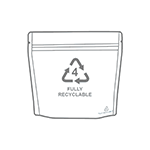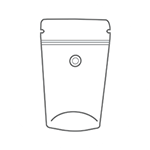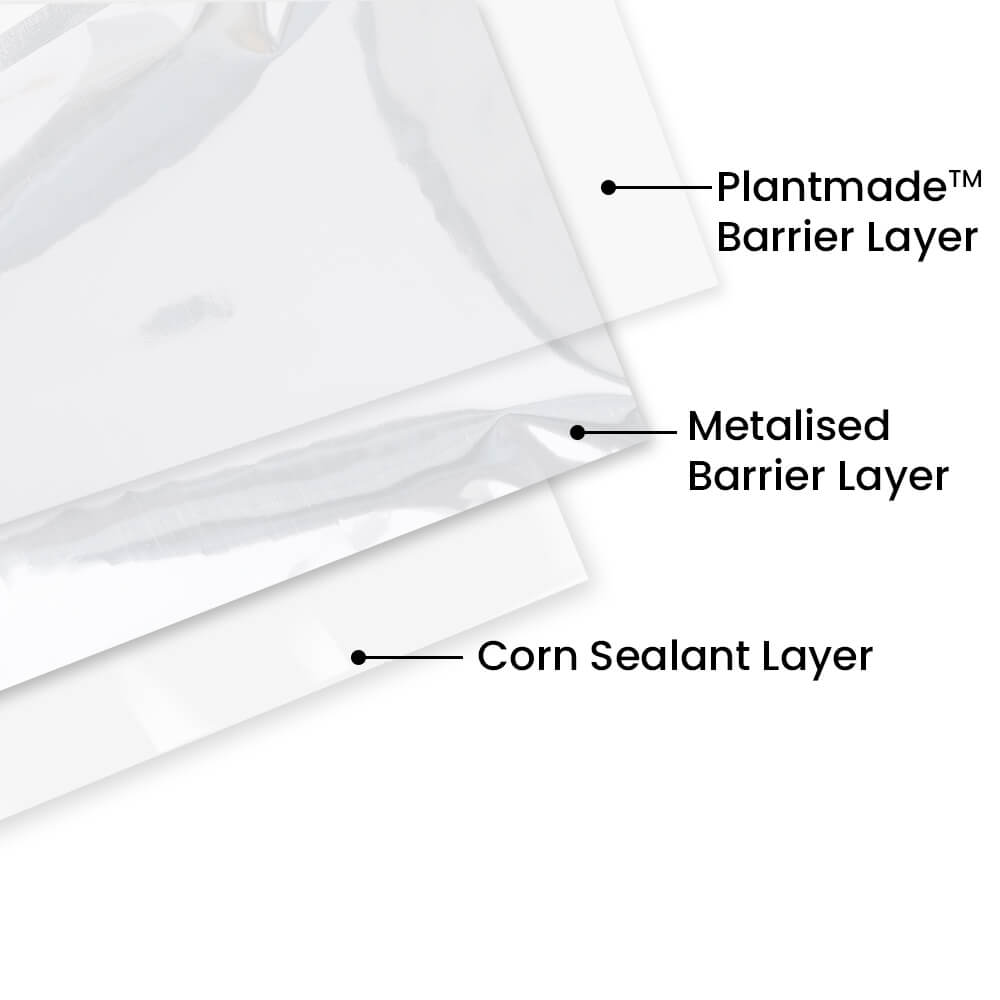
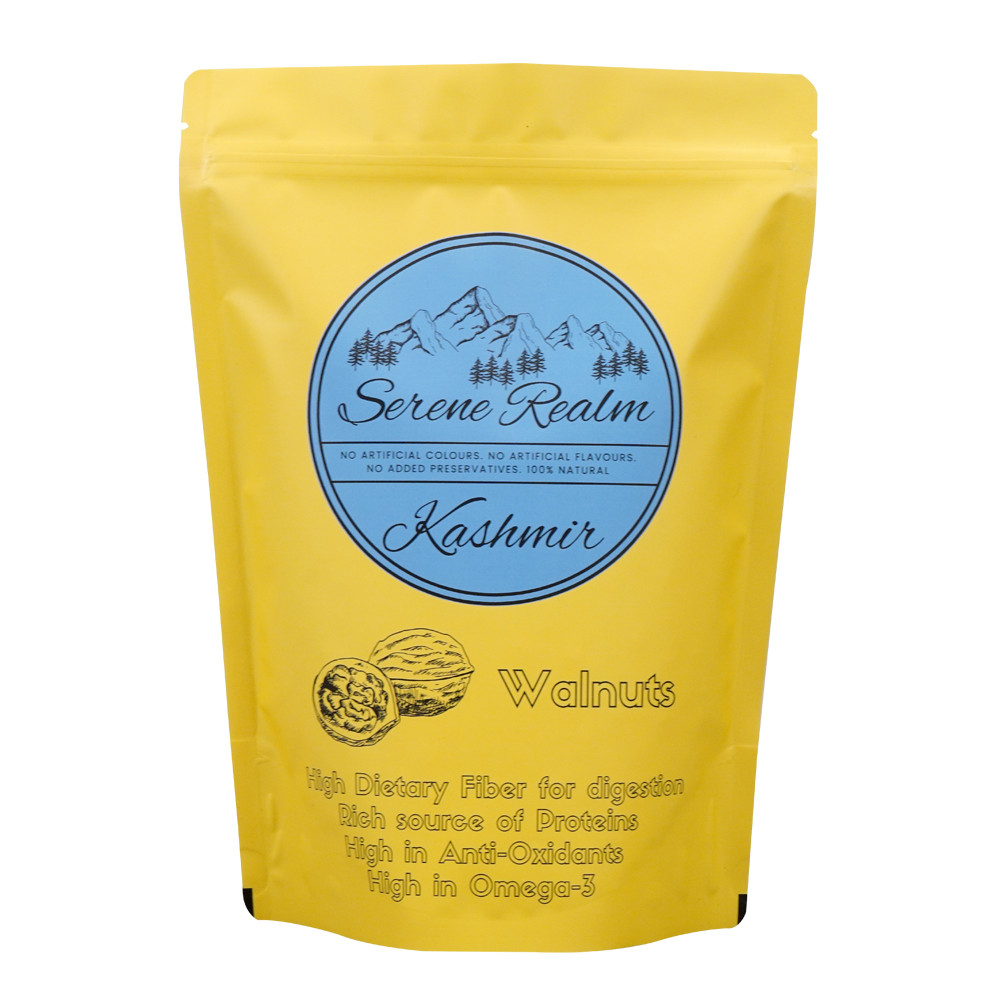
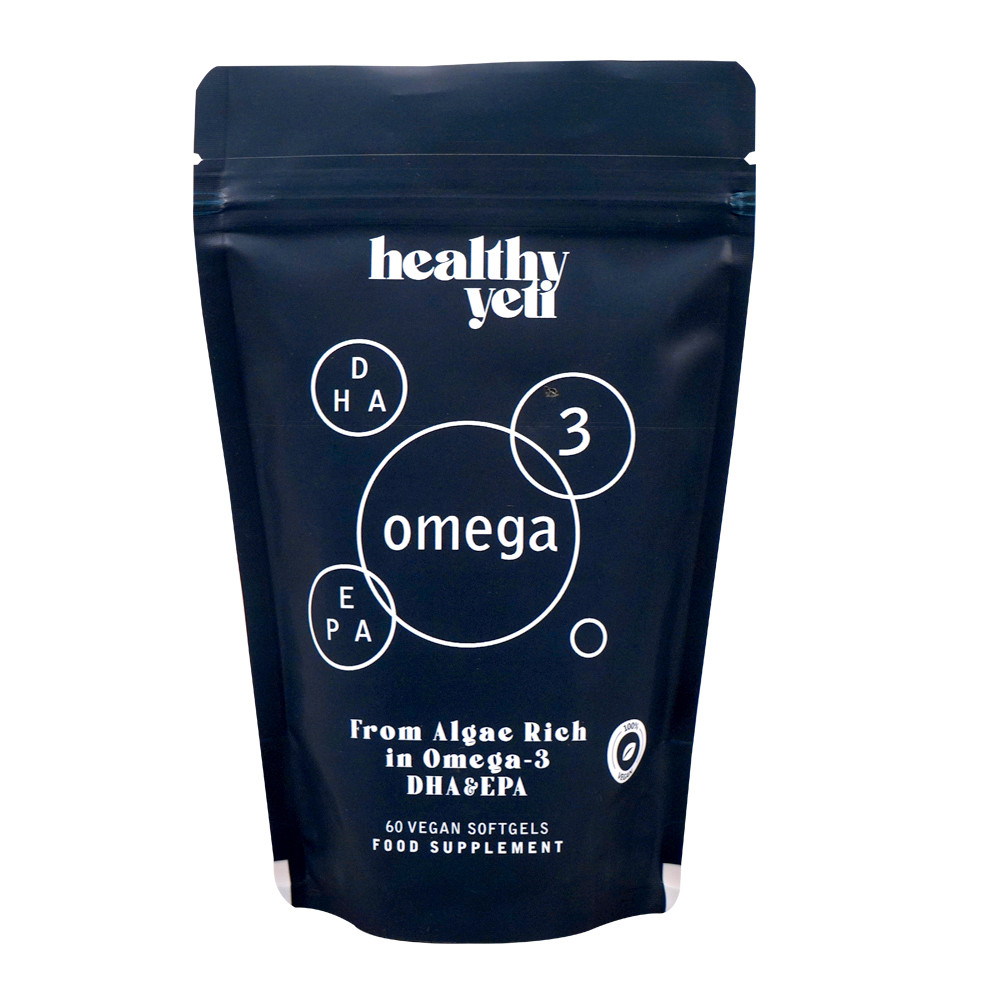
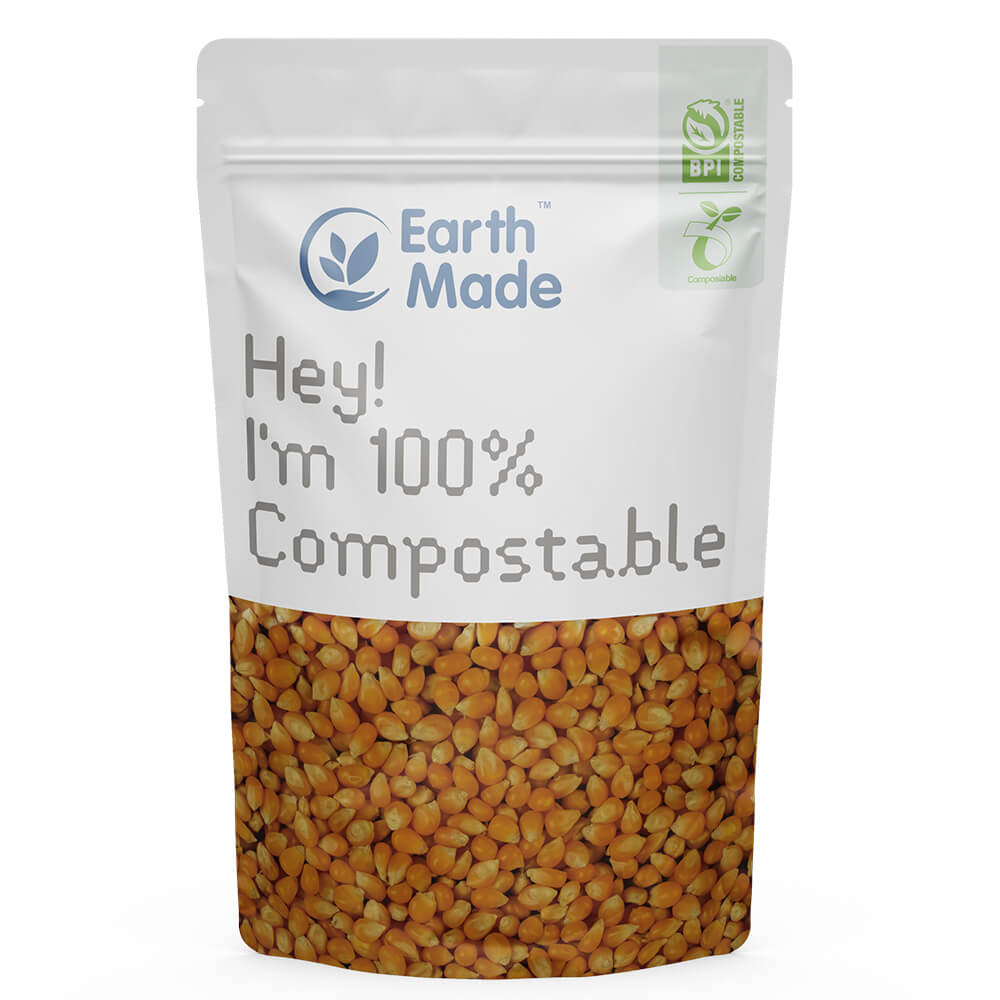
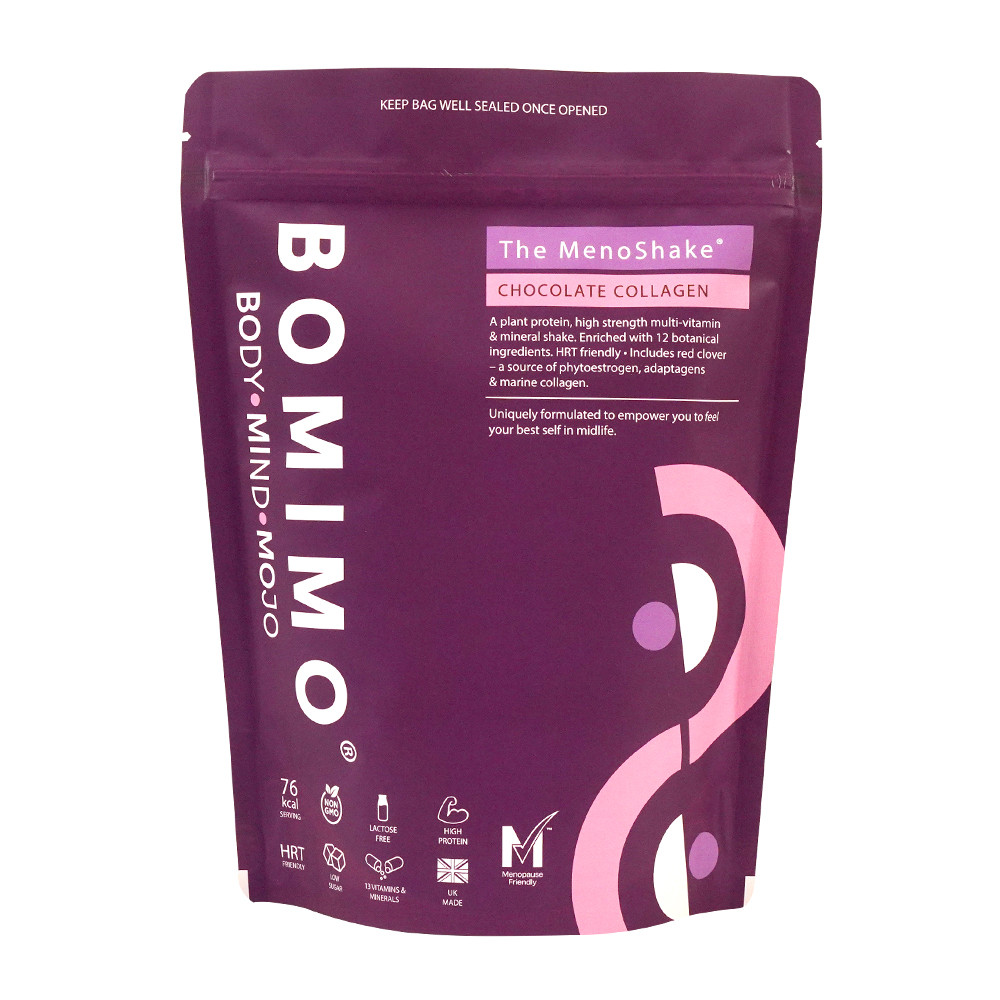
Compostable Metalised Laminate
Pouch Direct’s compostable Earthmade™ laminate with a metallic finish is home compostable and made from a blend of materials derived from Plant-based products. It has a high barrier to both oxygen and moisture, making it suitable for a wide range of industrial applications.
Compatible Style







Compatible Printing Technologies
- Rotogravure
- Digital
- Static
- Sticker (Label)
Eco-Friendly Attributes

Commercially Compostable
Converts into natural biomass when processed in specialized industrial composting facilities.

Household Compostable
Produces organic biomass when biodegraded in a home composting environment.

Fossil Fuel Conservation
Lowers the proportion of virgin fossil fuels

Materials from Renewable Sources
Produced using regenerative resources cultivated on plantations under responsible management

Eco-Friendly Inks
Inks made of water or biomaterials that don't need solvents derived from petroleum
Considerations
- Fully biodegradable (or compostable) in both residential and commercial composting settings does not decompose into tiny pieces of plastic.
- Flexible packaging made of biodegradable materials contributes to the growth of a sustainable circular economy. This is especially crucial for flexible packaging because it’s a difficult area for mechanical recycling.
- The market demand generated by the growing usage of biodegradable materials will result in the construction of significant composting infrastructure.
- Enhances the use of sustainable plant-based resources and decreases dependency on fossil fuels.
- Encouraging the growth of a composting waste stream also aids in addressing the issue of food scraps, which contribute significantly to greenhouse gas emissions and are an excess of garbage sent to landfills.
- More costly than conventional virgin plastics.
- Most materials that can be composted are hygroscopic, which means they prefer to absorb moisture. This indicates that they have a short shelf life for goods that include a lot of moisture or oil.
- Composting rates are currently low, despite the amazing potential that compostable films and laminates provide to create a successful circular economy.
- Compostable bioplastics will eventually produce methane, a greenhouse gas that is significantly more harmful to the environment than carbon dioxide, if they wind up in a landfill.
- Regarding compostable materials, there is a lot of false information available, and there are no widely recognized certification and labeling guidelines.
FAQ'S
Generally speaking, compostable materials are not compatible with wet or oily products over a long period. In certain applications they can work for products with short shelf-life requirements (~4-6 weeks).
No they don’t. Our materials are certified compostable which means that they’ve passed thorough biodegradation testing to ensure they completely biodegrade into healthy organic matter.
Compostable materials are designed to be composted and unfortunately that means they cannot be mechanically recycled. Although commercial composting systems are not currently widely available on a kerbside basis this is changing rapidly and so too is the rate of home composting.
Composting is an essential part of a functioning circular economy. We’ve broken down all the basics in our How to Compost blog post.
All of Pouch Direct’s compostable films and laminates are certified compostable, including any valves and zippers. For further information please visit our Certifications page.
The time it takes a product to biodegrade depends on the conditions of the composting environment. Industrial or commercial compost facilities run at higher temperatures and certification protocol requires materials to biodegrade within six months. Home composts are more variable and depend on external factors such as temperature, humidity and how often they’re turned. Home compost certification requires materials to biodegrade within 12 months at a temperature around 30°C. For more information check out our certifications page.
This is a great question and the answer is nuanced. They don’t contain plastic as most people know it but they are made from bioplastic, which is technically a type of plastic. Grounded has a range of bioplastics that are made using our compostable Plantmade™ technology.


